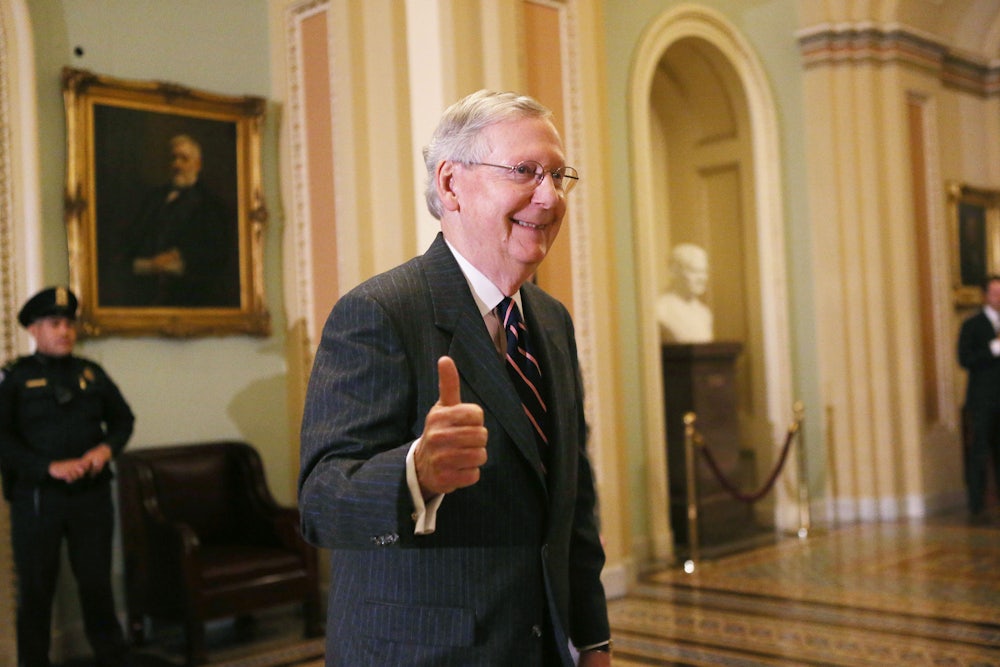At long last, Senate Republicans have released their version of Trumpcare—and it’s now obvious why they tried to hide it from the public. It is essentially a gift to America’s wealthiest families, and the poor, the disabled and the elderly will pay for it. The New York Times reports that the Senate’s bill maintains the deep Medicaid cuts proposed by the House and ends the taxes the Affordable Care Act levied to pay for an expansion of health care access. It adds that the bill would offer states “the ability to drop many of the benefits required by the Affordable Care Act, like maternity care, emergency services, and mental health treatment.”
Andy Slavitt, who helped design the ACA, believes the bill will be particularly dangerous for seniors:
This bill is awful for anyone planning on aging. Age tax, nursing home cuts, robbing Medicare Trust Fund. 13
— Andy Slavitt (@ASlavitt) June 22, 2017
As previously reported, Medicaid cuts in the form of per capita caps will disproportionately affect people with disabilities, and this problem remains unchanged from the House version of the bill.
It would also allow states to enforce work requirements for Medicaid recipients who are not disabled or pregnant. That’s red meat for conservatives, but it assumes that poor people are somehow allergic to work, and there is no evidence that is true. America’s recovery from the recession has been uneven: Some communities still face high unemployment rates not because their residents are lazy but because there is simply not enough work. The Senate bill would penalize those communities for an economic crisis they did not create.
Protestors in wheelchairs are being removed from Mitch McConnell's office. #HealthcareBill pic.twitter.com/oed19mawu9
— Holly O'Reilly (@AynRandPaulRyan) June 22, 2017
That doesn’t matter to Republicans. This bill, if passed, benefits the party’s wealthy donors, and that is a deliberate choice. “Personal responsibility,” “common sense,” “small government”—this is scaffolding, erected to obscure a crumbling edifice. The Republican Party is committed to the maintenance of a grossly unequal social hierarchy that handicaps the poor for the circumstances of their lives. This bill is the starkest manifestation of that political project. And though there may be some opposition to this bill from within Republican ranks, it will not be opposition to the substance of the party’s worldview but rather to the details of its implementation.
Democrats now have an opportunity to reinforce the distinctions between their party and the GOP. They can demonstrate an alternative vision. It will require significant courage, but it has become an absolutely necessary fight.
